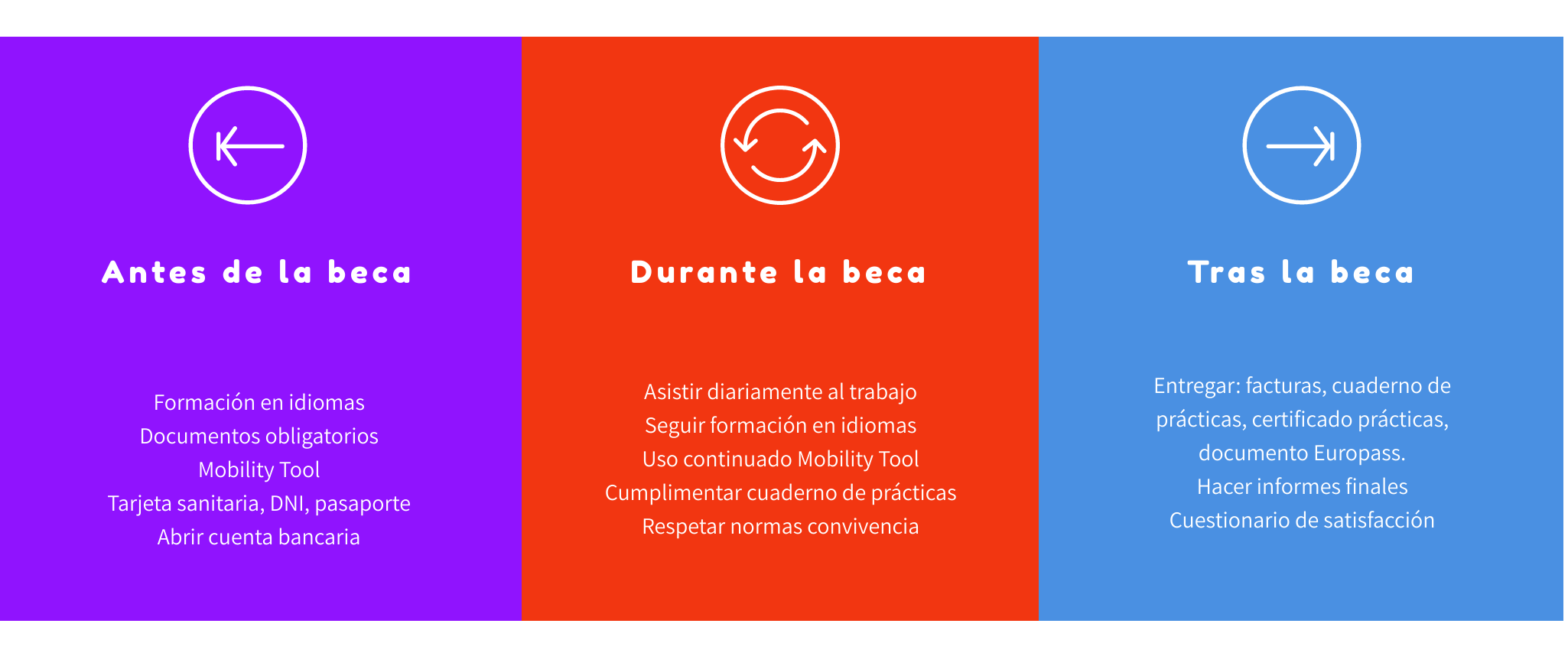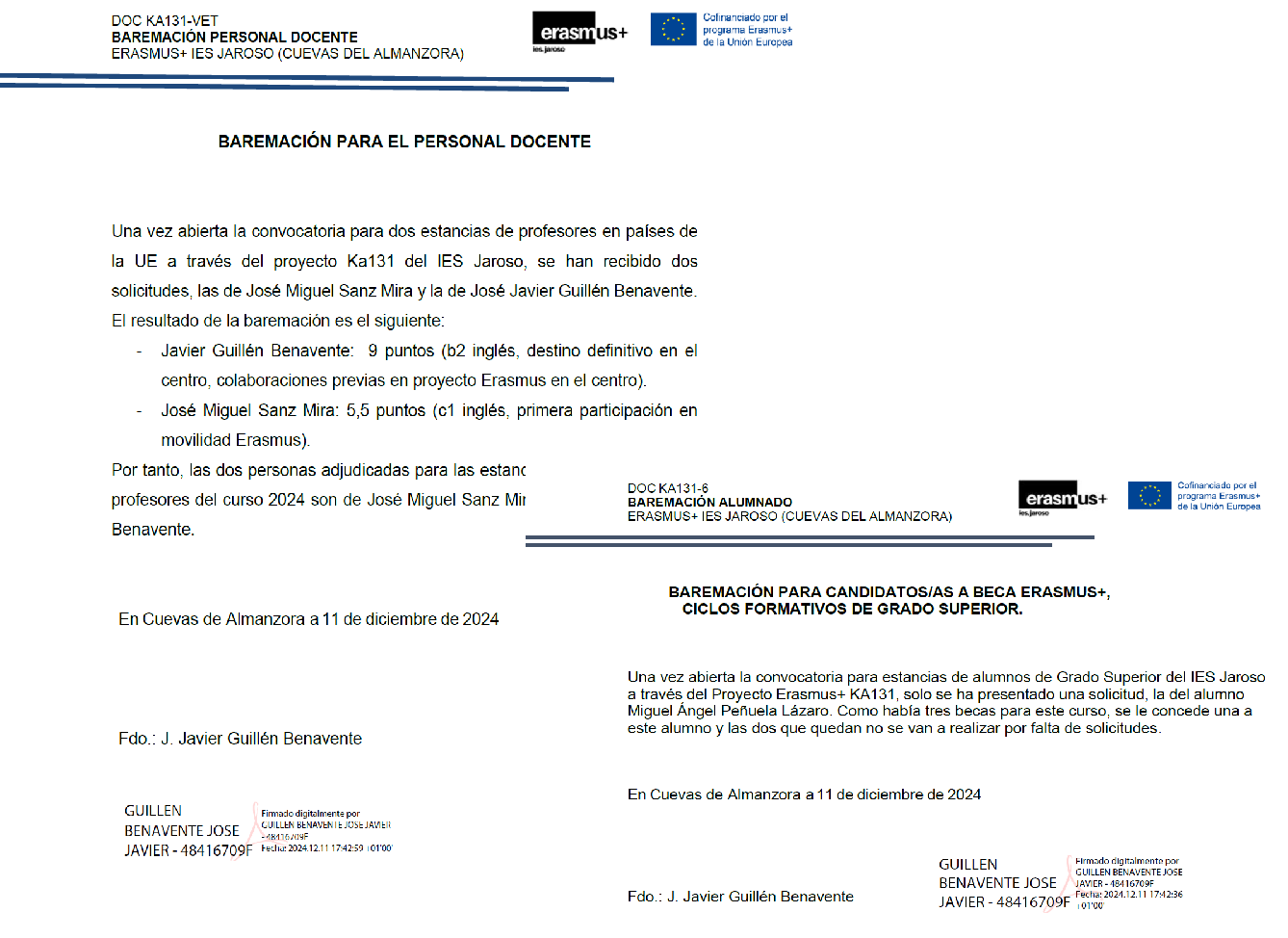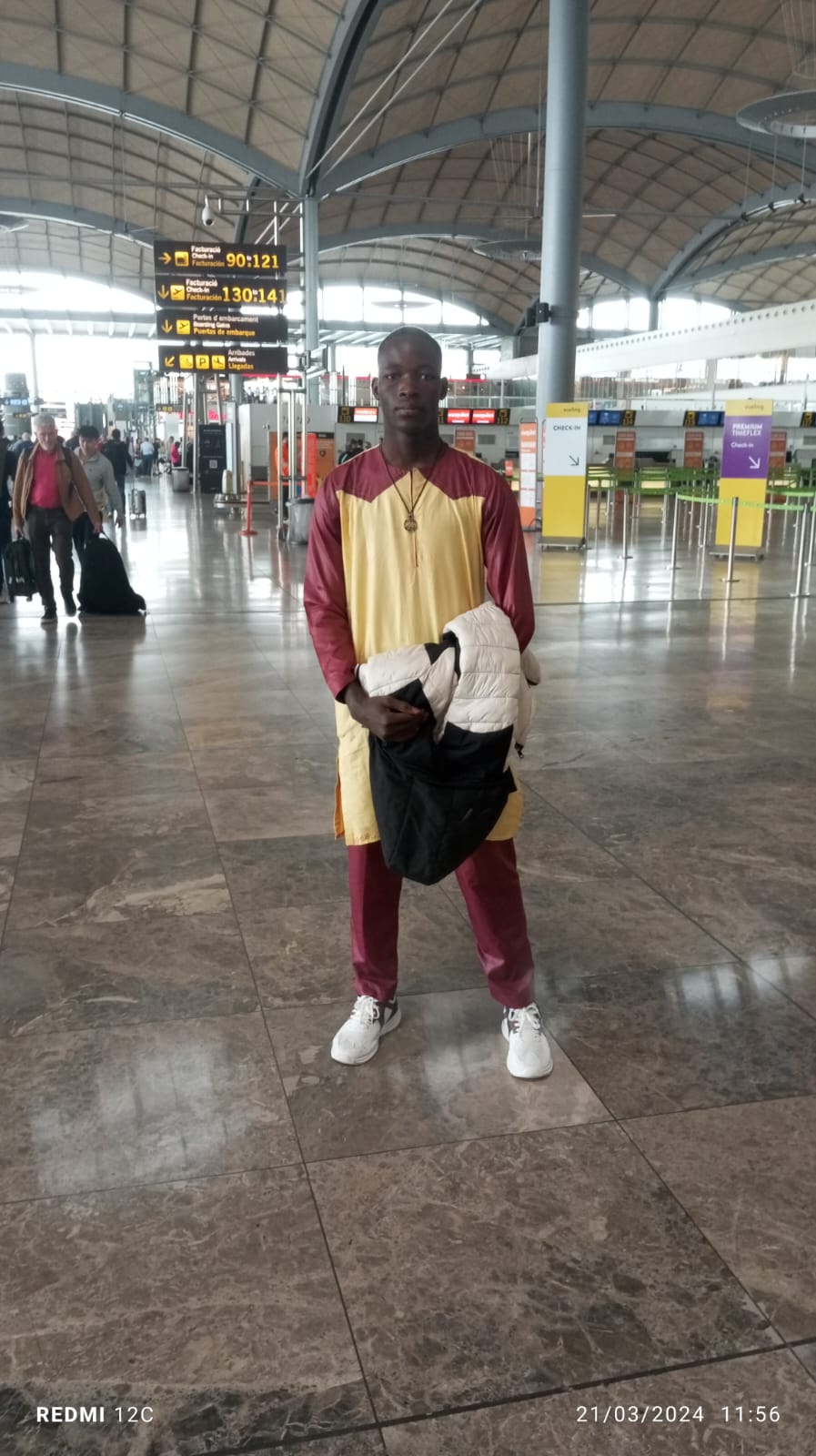
I WANT TO APPLY FOR THE SCHOLARSHIP
-
In order to apply for the Erasmus + scholarships you must ** be enrolled ** in a training cycle or have graduated in the year immediately prior to the completion of your internships. The request will be made using the form that you will find in the [Documents] tab (/ documents /). For this, you must be attentive to the different calls that the IES Jaroso is taking out, it is very easy, on the main page we will tell you everything. If you want more information contact us, we will be happy to answer all the questions and concerns you have. The application form can be sent by email or in person at the IES Jaroso Secretariat.
-
To be able to enjoy an Erasmus + scholarship you must be a ** responsible, autonomous, sociable, decisive person with the capacity to face new challenges **.
-
Of course, you must ** have passed all the theoretical-practical modules taught in your cycle ** (except for the practices at the end of the Higher Cycle first, in which you must have approved all the theoretical-practical modules of this course).
-
Once the application is submitted, you will be called for a meeting in which the ** procedures to be followed ** will be explained. Remember that Erasmus + scholarships are fixed amounts established by the European Union that in some cases, will not cover all your expenses, so you must inform yourself before their amount.
HOW MANY SCHOLARSHIPS ARE THERE?
The number of scholarships varies depending on the projects presented and accepted for our center. For the 2020/2022 course we have:
- 1 6-month scholarship for students of the Higher Level Training Cycles.
- 8 3-month scholarships for students of the Higher Level Training Cycles.
For the 2021/2022 course we have:
- 3 89-day scholarships for students of the Basic and Middle Grade Training Cycles.
ECONOMIC AMOUNTS
The European Union has different budget items depending on whether they are Vocational Training students (Basic or Middle Degree) or Higher Education (Higher Training Cycles) .In addition, the amounts vary depending on the destination and the duration of the internship: For more information, click here:
WHEN CAN I LEAVE?
Two calls will be made during the academic year:
- Mobilities in the September / December periods.
- Mobilities in the periods March / June.
- Summer mobility (for students in the first year of the Higher or Postgraduate Cycles).
WHAT GENERAL PROCEDURES SHOULD I DO ONCE SELECTED?
Remember that as a selected student you must fulfill a series of obligations before, during and after mobility.
Before mobility:
- Train in the language of the destination country:
- Complete the mandatory documents within the established period.
- For this, a series of pre-mobility meetings will be held, which are compulsory attendance, in which the documentation that you will have to read and sign will be explained.
- Check that you have a valid ID / passport.
- Apply for the European Health Card → Link
- Enable a bank account in which the student is the holder (keep it open for up to one year after mobility).
- Request the document certifying that you have no history of sexual offenses against minors (only if you are of legal age) → Link
- Signing of the General Data Protection Law (LGPD) to disseminate audiovisual material related to mobility.
During mobility:
- Join the day after your arrival at your job. In the case of Basic or Medium Grade Vocational Training students, it is possible to be accompanied by a teacher to make the beginning more bearable.
- Continue your online language training.
- Attend your workplace daily and on time and act with maturity, responsibility and initiative and always following the instructions of the workplace.
- Complete the workbook in the working language and maintain regular contacts with your Spanish work tutor.
- Send audiovisual material to the Spanish internship tutor (photos in the company, videos of your day to day telling the anecdotes that have caught your attention, etc.).
- Respect local customs.
- Contact the insurance company in case of accident or illness to receive medical assistance. If this prevents you from attending your workplace, you must immediately notify the company and your internship tutor.
After mobility:
- Give your tutor, within a maximum period of two days after your return, the following documentation:
- Bills, boarding passes and supporting documents for all the expenses you have incurred (except for food).
- Workbook duly signed and evaluated by your internship tutor.
- Copy of the internship certificate issued by the company.
- Europass document signed by the company.
- Take the final evaluation of the language course
- Fill in the EU Survey questionnaire and questionnaires provided by the IES Jaroso.
WHAT OBLIGATIONS DOES THE CENTER HAVE?
In this link you can see our Quality Commitment.
WHAT ARE THE OBLIGATIONS OF THE WELCOME INSTITUTION?
- Provide support for quality development of practices.
- Facilitate the understanding of the culture of the host country.
- Monitor the evolution of training.
- Guarantee the assignment of tasks and responsibilities according to the competences of the Training Cycle.
- Awarding of a host tutor to advise students during all mobility.
STUDENT SELECTION CRITERIA
The criterion for evaluating the selection of the students participating in these Erasmus + projects will be the following:
Scaling criteria for the students of the Basic and Middle Grade Training Cycles:
- Academic record: the maximum score will be 10 points.
- Languages. The maximum score will be 6 points:
| Level | Language of the host country | Language different from the host country |
|---|---|---|
| A1 | 1,5 points | 0,5 points |
| A2 | 2 points | 1 point |
| B1 | 2,5 points | 1,5 points |
| B2 | 3 points | 2 points |
| C1 | 3,5 points | 2,5 points |
- Vocational Training qualification other than the one taken, regardless of its level: 0.5 points for each, up to a maximum of 1 point.
- Not having participated in previous Erasmus mobility: 1 point.
- Degree of maturity and personal autonomy: 2 points. This section will be evaluated by the Selection Committee and the Guidance Department. The Guidance Department will carry out a socio-pedagogical test for the student, and may veto any of the mobility if it considers that the participant is not suitable.
Scaling criteria for students of Higher Level Training Cycles:
- 50%: average grade of the first course.
- 20%: personal interview (carried out by the corresponding teaching commission to assess each of the candidates, objectively determining the capacities, abilities and attitudes necessary to face mobility).
- 5%: official B1 language certificate (English).
- 5%: official B2 language certificate (English).
- 5%: official C1 language certificate (English).
- 10%: official certificate of languages C2 (English).
- 5%: other official language certificates B1, B2, C1, C2 (language / s of the receiving country of each student in mobility).


